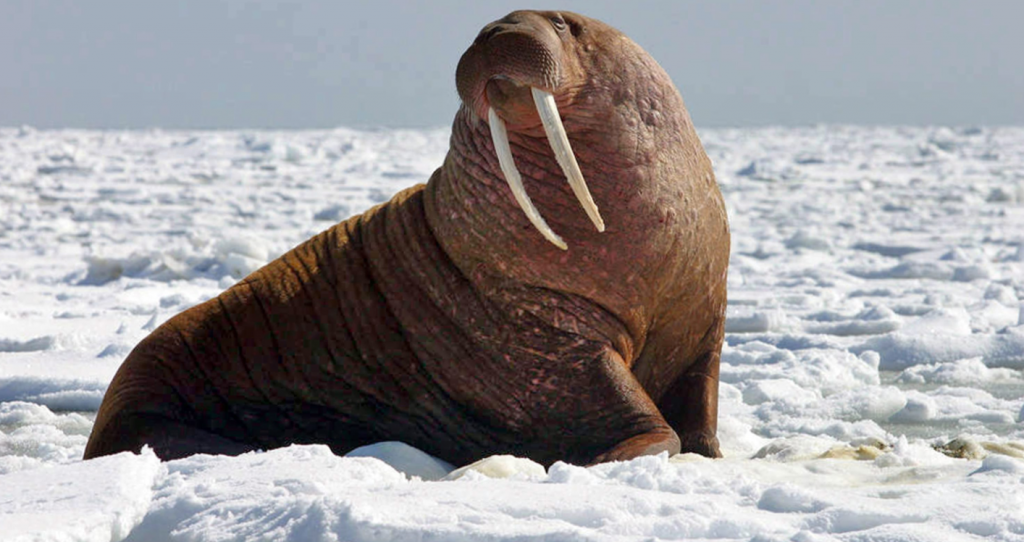Trump policy improperly denied protection to walruses, U.S. court rules

Thursday’s ruling ‘gives the Pacific walrus a fighting chance,’ says Center for Biological Diversity attorney
A U.S. federal appeals court ruled on Thursday that the Trump administration improperly denied Endangered Species Act protections to Pacific walruses, animals reliant on diminishing Arctic sea ice for survival.
The U.S. Fish and Wildlife Service under the Obama administration concluded in 2011 that designating walruses as “threatened” under the wildlife protection law was warranted, and the marine mammal was put in line for formal listing.
But Fish and Wildlife reversed itself in 2017 under then-Interior Secretary Ryan Zinke, determining that a listing and protections that come with it were not called for.
The agency asserted at the time that Pacific walruses had managed to adapt to ice loss and that there was uncertainty about threats to the species’ population.
Oil industry organizations argued the listing was unnecessary and would add another barrier to energy development in the region.
The 9th U.S. Circuit Court of Appeals, siding with environmentalists in a lawsuit challenging the Zinke decision, ruled that the Fish and Wildlife Service had failed to sufficiently explain the basis for its walrus-listing reversal.
“The essential flaw in the 2017 decision is its failure to offer more than a cursory explanation of why the findings underlying its 2011 decision no longer apply,” a three-judge panel wrote in its 20-page opinion.
Overcrowding on shore
Pacific walruses use floating sea ice as platforms for resting, foraging and caring for their young. But walruses have increasingly been forced to haul themselves out on land in Alaska’s Chukchi Sea as sea ice there rapidly dwindles from climate change, creating overcrowded conditions for the large marine mammals on shore.
One site near the Inupiat community of Point Lay has since 2007 regularly attracted throngs of walruses numbering in the tens of thousands.
Such onshore gatherings, which form in late summer and early fall when ice is at its seasonal minimum, can be dangerous. They put walruses farther from preferred foraging sites over the continental shelf, so they must expend extra energy swimming to find food. Many young calves have been trampled to death in stampedes triggered by spooked adults.
Other Arctic creatures — polar bears and some populations of seals — are listed as threatened because of sea-ice loss, but Pacific walruses never received that classification.
Center for Biological Diversity attorney Emily Jeffers said Thursday’s ruling “gives the Pacific walrus a fighting chance” by requiring government scientists to examine ways to mitigate sea-ice habitat loss.
Related stories from around the North:
Canada: Canada considers designating ringed seals as Species at Risk, CBC News
Finland: NGOs seek stricter fishing rules to protect Finland’s endangered Saimaa seals, Yle News
Russia: Walruses attack, sink small navy craft in Arctic Russia, The Independent Barents Observer
Sweden: Wolves finding new homes in southern Sweden, Radio Sweden
United States: Alaskans push for acceptance of walrus ivory, but there’s an elephant in the room, Alaska Public Media




Such a great rule for save environment and animals…AS far as i know U.S. Fish and Wildlife Service under the Obama administration concluded in 2011 that designation of “threatened” under the Endangered Species Act was warranted for walruses, and the marine mammal was put in line for formal listing.
But the agency reversed itself in 2017 under then-Interior Secretary Ryan Zinke, determining that a listing and protections that come with it were not called for.
The 9th U.S. Circuit Court of Appeals, siding with the environmental group Center for Biological Diversity in a lawsuit challenging the Zinke decision, ruled on Thursday that the Fish and Wildlife Service failed to properly explain its walrus reversal.